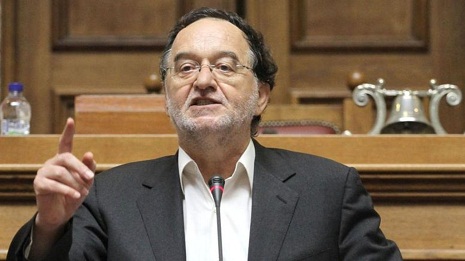EU policy makers are concerned that Russia could take advantage of the crisis to pull Greece deeper into its orbit, and pipeline politics is critical to relations between the two nations.
Athens and Moscow say the new project, the so-called South European Pipeline, will bring 47bn cubic metres annually of Gazprom’s gas into Europe after 2018. Mr Lafazanis — the political patron of Greece’s biggest public sector company, the Public Power Corporation, which holds a near-monopoly of its electricity market — pledged it would create 20,000 much-needed jobs in Greece.
The promised deal with Russia is a sharp rebuke to Brussels, which wants to reduce EU dependence on Gazprom and argues that southeastern Europe should diversify its supply by prioritising gas from Azerbaijan.
Opening his remarks with pugnacious references to the eurozone crisis, Mr Lafazanis said Greece was aiming to secure a deal with Brussels as quickly as possible. But he warned EU institutions that Athens was not about to roll over.
“Greece is no one’s hostage,” he said. “The Greek people’s No vote, and I am referring to all of the people, is not going to become a humiliating Yes. Greece is not, under threat of execution, ready to accept any fait accompli.”
He said an energy deal with Russia was an important component in Greece’s “multi-faceted” foreign policy.
Mr Lafazanis is the leader of the governing Syriza coalition’s radical leftist faction, and political analysts predict he could seek to whip up political opposition to Alexis Tsipras if he opposes any deal struck by the Greek prime minister.
The planned Greek gas deal comes after Russia late last year dropped its landmark South Stream project that was intended to bring 63bn cu m into the EU, bypassing Ukraine by running under the Black Sea to Bulgaria. Moscow has rebranded the project as Turkish Stream, which would export the same volume to the southern coast of the Black Sea and then to Greece. Industry experts are sceptical that the Turkish project can be built and financed in the next few years.
Brussels opposed South Stream because it ran against EU competition rules that prevent Gazprom from dominating both upstream gas supply and distribution. The European Commission insists any pipeline across Greece will face the same competition restrictions.
To diversify away from Gazprom, the EU is throwing its political weight behind the Trans-Adriatic Pipeline, partly owned by BP. This is expected to pipe 10bn cubic metres of Azeri gas from the Turkish-Greek border to southern Italy by 2020.
Mr Lafazanis said he supported both projects but stressed that he also had specific demands regarding TAP, including compensation for farmers affected by the pipeline and benefits for communities nearby. “We hope that the management of TAP will respond to our demands,” he said.
More about:
















































